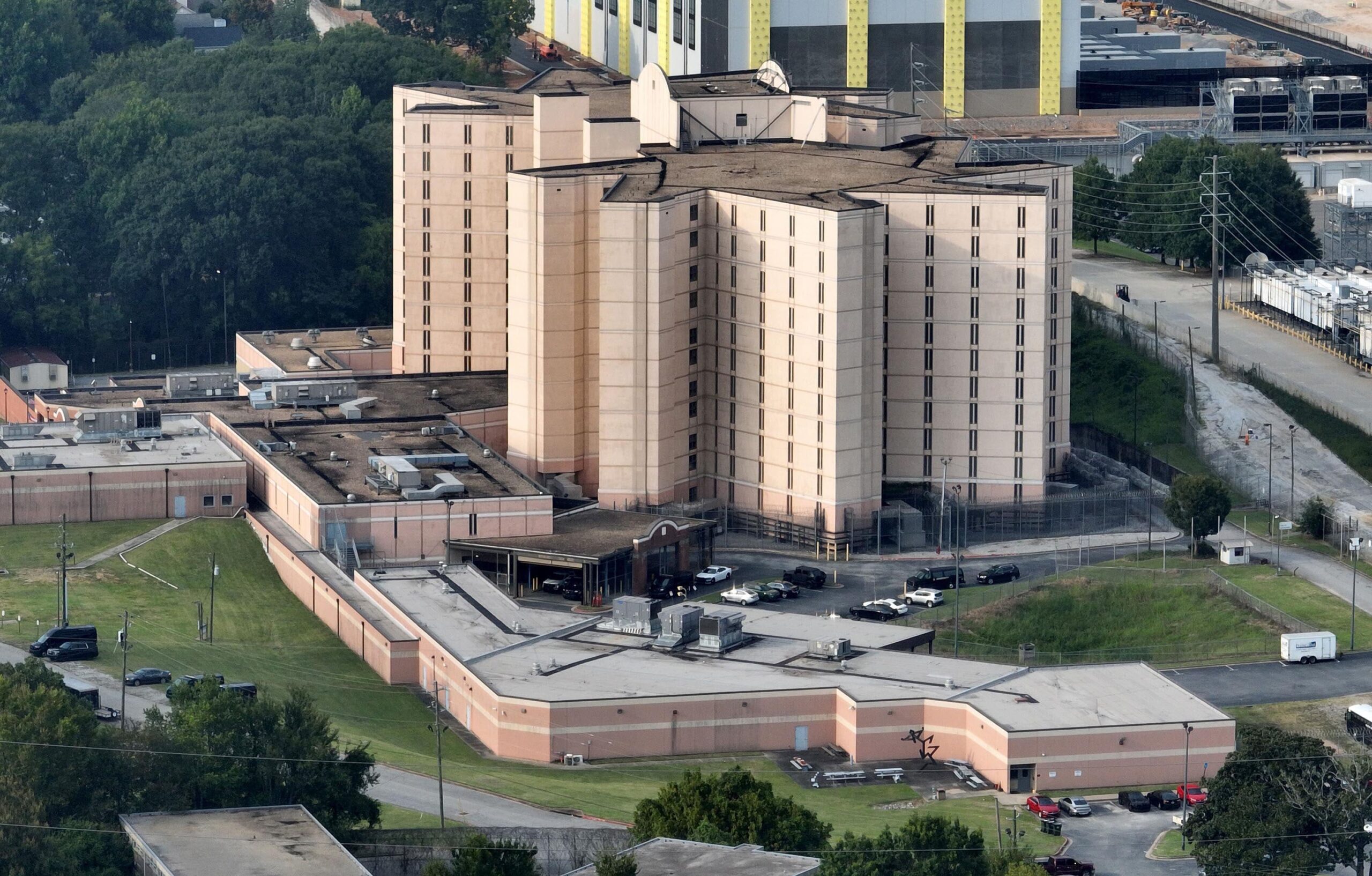Earlier this year, the U.S. Department of Justice and Fulton County entered into a federal consent decree that required the county and its sheriff to address jail conditions that federal officials deemed disgusting and illegal.
A message requesting comment on the commission’s vote was not answered by Sheriff Patrick Labat’s spokeswoman on Wednesday. The sheriff’s administration of the jail and how to make things better going forward have been the constant points of contention between Labat and the commission. Labat backed a plan to construct a brand-new facility for $1.7 billion.
ACR Partners, the county’s project manager for jail upgrades, made a presentation on Wednesday claiming that the Rice Street structure is dilapidated. According to the examination, the electrical system, plumbing, fire protection, interior finishes, and roof are all in severe condition.
Natrice Miller at [email protected] is credited.
Natrice Miller at [email protected] is credited.
The expected cost of the new facility for prisoners with medical, mental health, or other special needs is $536 million, while the estimated cost of renovations to the Rice Street jail is $552 million. The county anticipates spending an additional $143 million on upkeep and contracting out part of the prisoners.
With one bed per cell, the new prison would house 1,800 inmates, while the Rice Street jail would house roughly 1,600 after renovations and new construction. According to Chairman Robb Pitts on Monday, between 40 and 70 percent of Fulton’s inmates at any given moment have mental health or drug misuse problems that might put them in the new institution.
Last year, commissioners decided against constructing the new jail. They estimated that a new facility and modifications would cost $300 million at the time. The estimated cost of the proposal that was authorized on Wednesday is four times that amount.
But according to Chief Financial Officer Sharon Whitmore, the county can pay for it in part with money from tax allocation districts that are about to expire without raising the tax rate. According to her, the county currently loses out on roughly $57 million in property tax income annually in those districts. Instead, the funds are used to fund local development.
According to Whitmore, a projected drop in pension contributions starting in 2033 as the county’s defined benefit pensions wind down will generate an additional $50 million annually.
Barrett argued that the cost of renovating the Rice Street jail was higher per bed than the cost of building the new facility.
“The information you have given us indicates that remodeling Rice Street is not a cost-effective solution at all,” she stated.
Ivory expressed her doubts that the county could cover all of the costs without raising taxes.
[email protected] is credited.
[email protected] is credited.
“In the history of projects, I have never seen a project that didn’t cost more than the initial estimates,” she remarked. I’ve observed this county doing this. We perform these fictitious numbers.
The county anticipates that construction will start in two years and be completed in 2030. In the interim, some prisoners might be transferred to the new facility while the Rice Street jail was being renovated. Others might go to other jurisdictions or the jails in Fulton’s annex.
A number of locals and activists opposed the proposal. Many pointed out that it wouldn’t address the jail’s acute understaffing and accused Sheriff Labat of poor administration.
Recently, four convicts, either present or former, filed a lawsuit against Labat and the county, claiming that personnel failed to take appropriate action after fellow inmates attacked them in the jail.
According to LaQuondria Pierce, a former employee of the sheriff’s office, prisoners are being misclassified and assigned to the incorrect units, putting everyone in the facility at risk.
According to Pierce, picture yourself as a female officer overseeing a floor of 200 prisoners by yourself. Our reality was that.
Commissioners received a position paper and pages of questions from the Southern Center for Human Rights. They claimed it’s unclear if the facility plan is supported by the court-appointed monitor in charge of the federal consent decree.
According to the group, this plan is based on deferred action and offers no direct help to individuals incarcerated in Fulton County.
The 700 beds that Fulton County is now renting at the Atlanta City Detention Center are set to expire at the end of the following year. Advocates are urging the Atlanta City Council to terminate the lease on schedule so the city facility may be transformed into a community center, but some Fulton commissioners have hinted at the potential of an extension.






